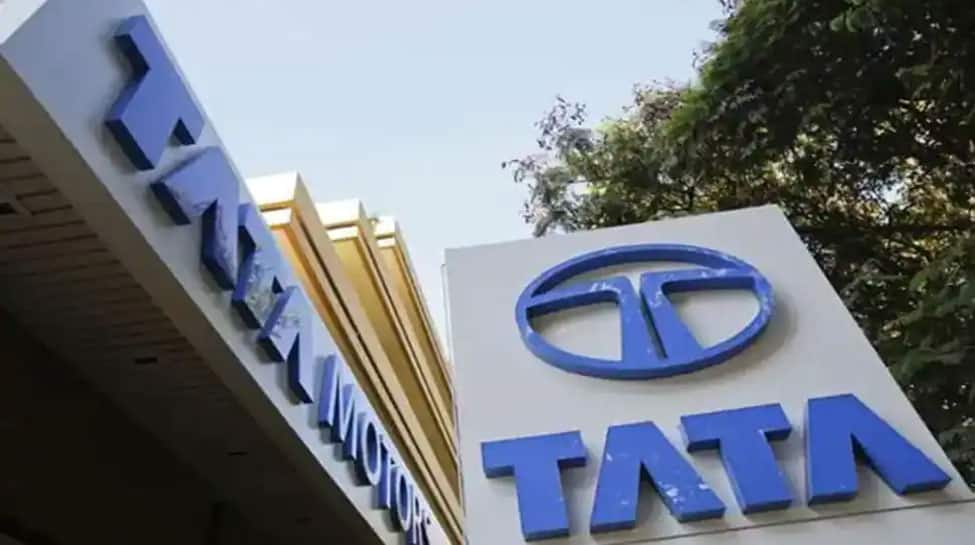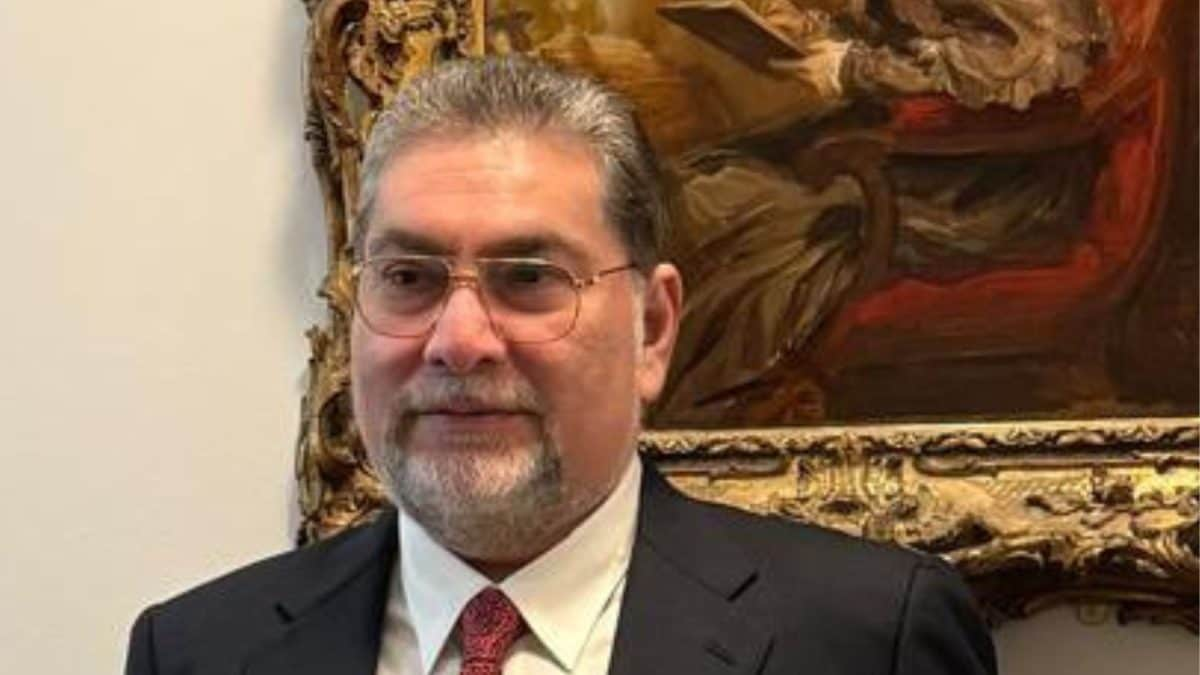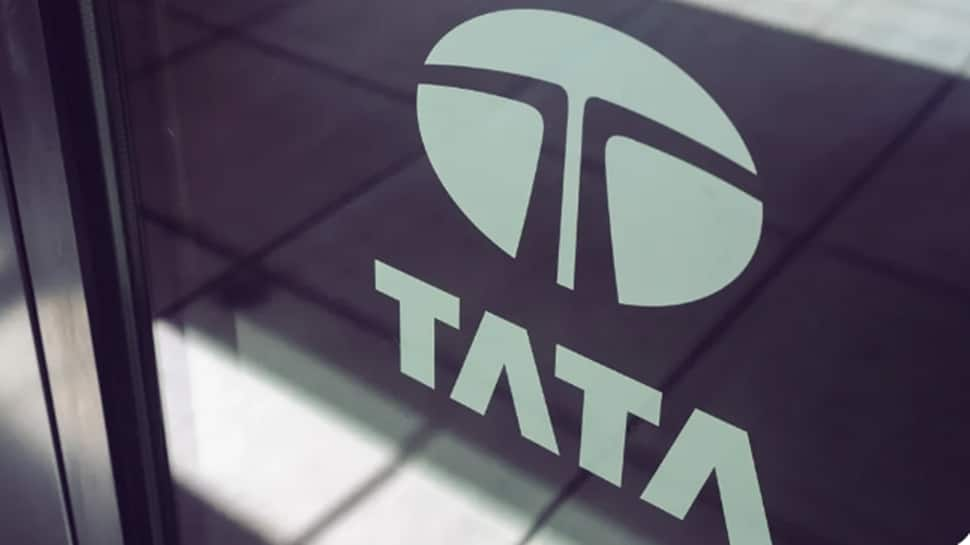Business
Tata Trusts vice-chairman Vijay Singh exits Tata Sons board – The Times of India

MUMBAI: In an abrupt move, Tata Trusts vice-chairman Vijay Singh (77) has resigned from the board of Tata Sons, a day before the holding company’s directors were to meet, and amid an impending RBI-mandated IPO deadline.Two main units of Tata Trusts – Sir Dorabji Tata Trust and Sir Ratan Tata Trust – collectively hold approximately 52% in Tata Sons, the parent of the $165-billion Tata Group, which has a diverse portfolio ranging from aviation to automobiles.Singh served as a nominee director of Tata Trusts on Tata Sons board. He will continue to be a trustee of Tata Trusts. The move comes as a surprise since nominee directors of Tata Trusts do not have a retirement age, unlike other directors on Tata Sons board. For instance, executive, non-executive, and independent directors of Tata Sons retire at the ages of 65, 70, and 75, respectively.However, a resolution by Tata Trusts dated Oct 17, 2024, stipulates that nominated directors on Tata Sons board who reach the age of 75 must be reviewed annually. During Tata Trusts board meeting on Thursday, the nominated directors’ ages were reviewed.The majority of the trustees supported the review and the induction of younger individuals onto the Tata Sons board. The other two nominee directors on Tata Sons board are Tata Trusts chairman Noel Tata (69) and vice-chairman Venu Srinivasan (72). Singh declined to comment, when contacted.This was Singh’s second stint at Tata Sons board. The former defence secretary was initially appointed to the board in June 2013, but stepped down in July 2018 upon reaching 70 years. At that time, the retirement age for Tata Trusts nominees was 70.He was reappointed to the board in Feb 2022 at the age of 74. This was possible as former Tata Trusts chairman Ratan Tata had introduced an unspecified retirement age for nominated directors.Tata Sons and Tata Trusts have been using retirement age as a tool to either extend or end the term of a board member at the company. For instance, in the past, the retirement age for non-executive directors was revised to 75 from 70, which had allowed Ratan Tata to continue as chairman of Tata Sons until that age. Singh earned Rs 3.2 crore as commission from Tata Sons in FY25. Singh’s departure, along with the recent end of tenures of two other Tata Sons directors – former JLR CEO Ralf Speth and Piramal Enterprises boss Ajay Piramal – opens up opportunities for new members. These changes have left Tata Sons board with six members. According to Tata Sons’ articles of association, Tata Trusts can nominate one-third of the directors. However, this requirement (two of six board seats) is currently fulfilled by Noel and Srinivasan.The development occurs as Tata Sons’ board is scheduled to meet on Friday, with the looming RBI-mandated IPO deadline for both the company and its subsidiary Tata Capital approaching by the end of this month. Tata Capital has sought a short extension for the launch of its $1.9-billion IPO from the RBI, while Tata Sons has applied to RBI to surrender its core investment company registration to avoid the IPO. Tata Capital intends to launch the IPO in the first half of Oct, which will make it the largest in the country.
Business
How ‘Dry January’ turned into ‘Damp Monday’ at this popular supermarket

The annual tradition of “Dry January” turned into “Damp Monday” at one supermarket, with shoppers returning to alcohol consumption in the middle of the month.
Waitrose said that the month was “not so dry after all,” identifying January 12 as “Damp Monday” after sales of wines, beers, and spirits surged by 11 per cent compared to the week before.
The grocer noted a “significant softening” of the Dry January trend over the past five years, suggesting a more balanced “Damp January” approach is now prevalent.
While alcohol sales in January 2022 were 42 per cent lower than other months, this year saw a reduced drop of just 25 per cent.
Notably, Argentinian and Chilean wine sales experienced a considerable boost last month, rising by 25 per cent and 27 per cent respectively compared to the previous year.
Compared to this time last year, searches on Waitrose.com for “Argentinian wine”, “red wine” and “Chilean wine” were up 300%, 63% and 18% respectively.
Pierpaolo Petrassi, head of beers, wines and spirits at Waitrose, said: “Damp is the new dry, as we’re seeing customers move away from the ‘all-or-nothing’ mentality and instead look towards more mindful, ‘damp’ moderation rather than quit entirely.
“This shift sees the likes of a luxury Argentinian Cabernet sitting comfortably alongside premium non-alcoholic spirits as sophisticated sips, proving that the modern palate values flavour profiles and social connection over the buzz alone.
“No doubt the no and low trend skyrocketed in 2022 as the result of the ‘pandemic reset’ transitioning out of the final lockdowns, as well as the ‘sober curious’ movement going mainstream on social media.
“Now, 2026 is the ‘lifestyle’ year, with customers finding balance as part of a more tempered, year-round approach to drinking.”
Data reported by The Spirits Business trade publication from early this year suggested that while 58% of the UK public aimed to cut back, a significant portion – roughly 31% – had opted for a “damp January” – reducing intake rather than cutting it out entirely.
Business
Budget eases PF, ESI deduction rules for employers, allows relief for delayed deposits – The Times of India

In a move expected to bring relief to employers and reduce routine tax disallowances, the finance bill has proposed a key change to the treatment of employees’ provident fund (PF), ESI and similar contributions, allowing deductions even where there is a delay in deposit, provided the amount is deposited by the employer entity with the relevant welfare fund authorities before the due date of its Income-tax return.At present, employers can claim deduction for employees’ PF and ESI contributions only if the amounts are deposited within the strict timelines prescribed under the respective welfare laws. Even a minor delay permanently disqualifies the expense for tax purposes, a position that had been settled by the Supreme Court (SC) after years of litigationUnder the proposed amendment to Section 29 of the Income-tax Act, 2025, the definition of “due date” for claiming deduction of employees’ contributions is set to be aligned with the due date for filing the income-tax return by the employer entity.Explaining the shift, Deepak Joshi, a SC advocate said employers are currently held to a rigid standard. “The law, as interpreted by the SC, meant that if employee contributions were not deposited within the due date under the relevant welfare fund laws, no deduction was allowed — even if the payment was made before filing the income-tax return,” he said.“The proposed amendment substitutes the definition of ‘due date’ to mean the due date of filing the income-tax return. The positive impact is that even if there is a slight delay in depositing employees’ contributions, so long as the amount is deposited before the return-filing deadline, the employer will be allowed the deduction,” Joshi added. Experts view the move as part of the government’s broader effort to soften compliance rigidities and reduce avoidable litigation.
Business
Free baby bundles sent to newborn parents but some miss out

Baby boxes are being delivered to expectant families in some of Wales’ most deprived areas.
Source link
-

 Sports6 days ago
Sports6 days agoPSL 11: Local players’ category renewals unveiled ahead of auction
-

 Entertainment6 days ago
Entertainment6 days agoClaire Danes reveals how she reacted to pregnancy at 44
-

 Tech1 week ago
Tech1 week agoICE Asks Companies About ‘Ad Tech and Big Data’ Tools It Could Use in Investigations
-

 Business6 days ago
Business6 days agoBanking services disrupted as bank employees go on nationwide strike demanding five-day work week
-

 Fashion1 week ago
Fashion1 week agoSpain’s apparel imports up 7.10% in Jan-Oct as sourcing realigns
-

 Sports6 days ago
Sports6 days agoCollege football’s top 100 games of the 2025 season
-

 Politics1 week ago
Politics1 week agoFresh protests after man shot dead in Minneapolis operation
-

 Politics6 days ago
Politics6 days agoTrump vows to ‘de-escalate’ after Minneapolis shootings











